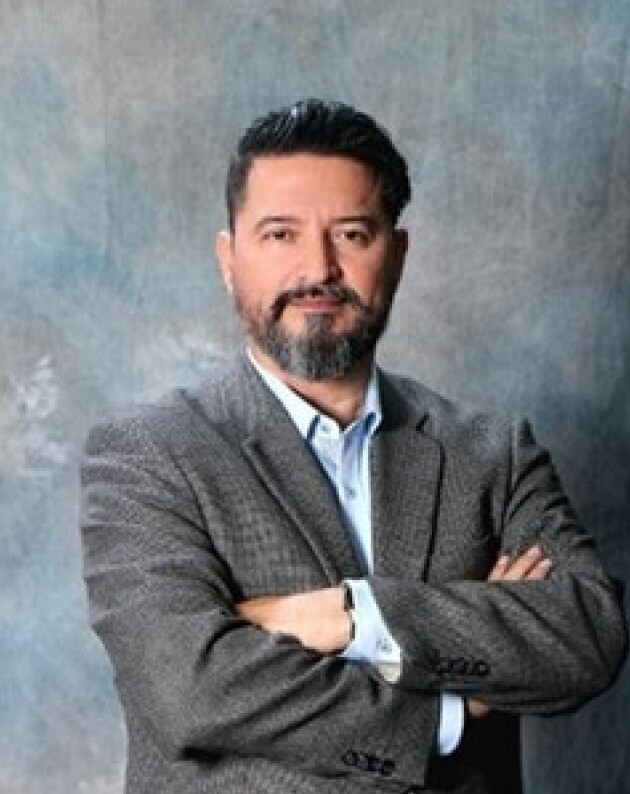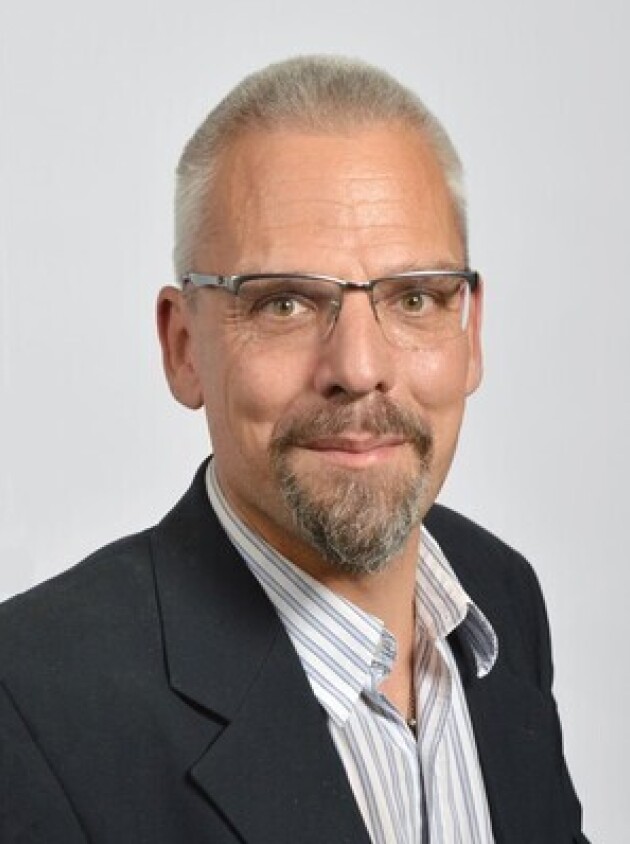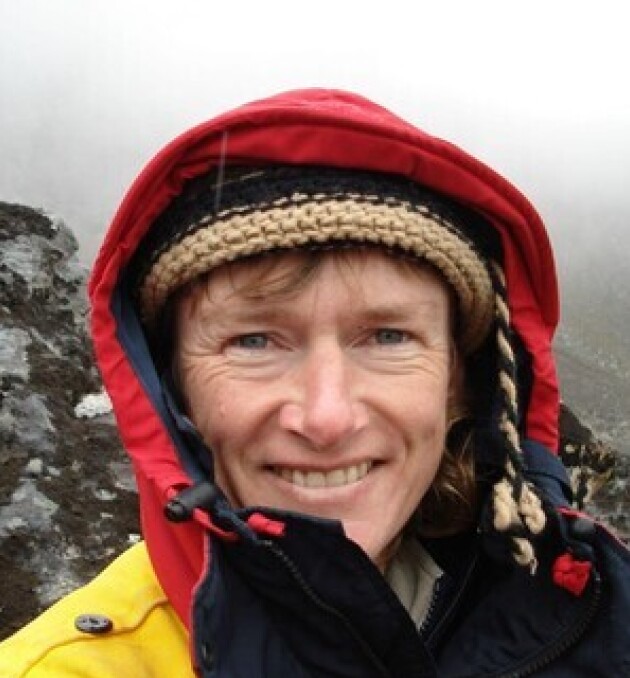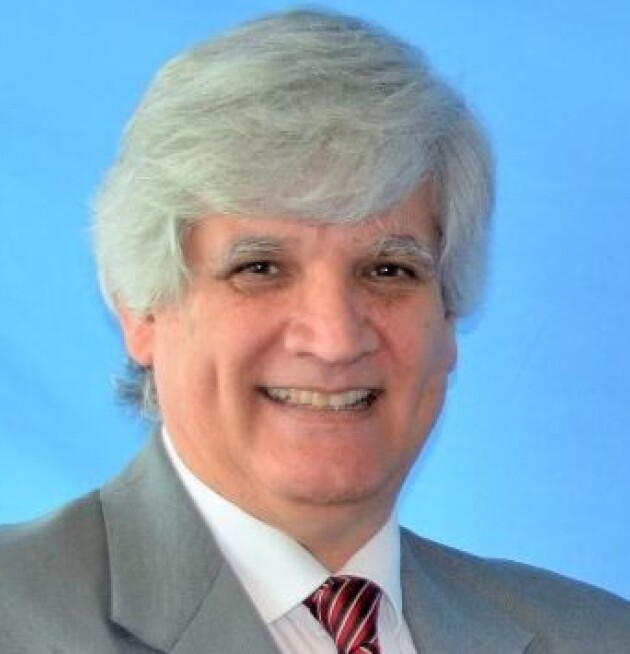
Do not miss the opportunity to participate in this exclusive Webinar organised by Astraterra UK and Imperial College London’s Centre for Active Resilience and Security (CARS) on: ”The Role of Earth Observation in Crisis and Disaster Management in Emerging Countries”.
The UN Office for Disaster Risk Reduction (UNDRR) recently observed that, “the world is on track for more than one disaster a day by 2030, and that we are to be hit harder by more catastrophes colliding in an interconnected world! Therefore, better crisis and /disaster management is needed to ensure a high level of sustainability and resilience, in line with United Nations Sustainable Development Goals (e.g. SDG 1: No Poverty, SDG 6 clean and water sanitisation, SDG 13: Climate Action, SDG 15: Life on Land, and SDG 17 Partnership for the goals).
The explosion in Earth Observation (EO) data from Remote Sensing Satellites from various national and international programmes, in addition to a new generation of commercial satellites and emerging constellations of small satellites, offers an unprecedented opportunity to develop effective solutions for crisis and disaster management. However, this requires appropriate tools for data management and analytics, business models and social frameworks. Disruptive technologies such as AI, 3D data visualisation, cloud computing technologies and blockchain, for
example, could play a significant and enhanced role in the creation of the required analytical tools!
The expected learning outcomes are a good understanding of:
1. The latest disruptive innovations in EO.
2. How EO can help prevent crises and disasters
3. Innovative insurance business models and how they help emerging countries
4. The role of International agreements and collaboration
in data sharing , standardisation, technology transfer governance and collaborative policies
5. The Paraguay experience and the collaboration with UNOOSA, CEOS WG Disasters and other Space agencies
Speaker bios

Professor Alejandro Roman
Prof. Roman is the Chair of the Developing and Emerging Countries Committee (IAF ACCESS) at the International Astronautical Federation (IAF). Roman currently serves as General Director of Execution and Aerospace Development at the Paraguayan Space Agency, GEO Principal for Paraguay, and the GEO POST-2025 Working Group co-chair. He is also a member of the Group of Earth Observations Executive Committee. He is also an undergraduate and graduate professor at UNIDA University. He earned global awards, including the 2021 Technology Excellence Award in India.
Previously, Prof. Roman led technology operations as IT Manager for Paraguay’s Civil Aviation Authority for over a decade. He was an Academic Coordinator at the Engineering School of the University of the Integration of the Americas (UNIDA). He is also a Full-Member Academician of the International Academy of Astronautics (IAA) and a Member of the Spanish Network of Planetology and Astrobiology (REDESPA).

Mr. Gijs van den Dool is an international consultant and renowned expert in natural catastrophe modelling and climate change risk assessments. He possesses extensive experience in Geographical Information Science (GIS), particularly in utilising remote sensing for natural disaster preparedness and mitigation, with a strong track record in the (re)insurance and environmental consulting sectors, having worked for established companies like CoreLogic, a data broker for the (re)insurance industry, FinnOC, and SIXENSE Engineering, and lead various startups studying Climate Impact.
His work focuses on leveraging machine learning and traditional statistical methods to analyse and predict natural disaster and climate change risks using Earth Observation data.
Mr. van den Dool is working with AstraTerra on several initiatives to make Earth Observation data more accessible and integrate the data into policy and decision-making through the utilisation of Digital Twins and Smart Technology.

Dr Mireille Elhajj is the founder of London-based boutique consultancy Astra-Terra, a company specialising in Positioning, Navigation Timing, Earth Observation (EO) data modelling and analysis, and Intelligent Transport Systems (ITS) with an emphasis on space and infrastructure, including intelligent transportation. (www.astraterra.com). She is also a Fellow at The Royal Institute of Navigation (RIN) in London and a Senior Honorary Lecturer at Imperial College London. Dr. Elhajj has a background in PNT, systems engineering, space applications and transportation. Previously, she was the Director of the Integrated Space Science Engineering Program (executive and continuing education) and an Advanced Research Fellow at Imperial College London’s Department of Civil and Environmental Engineering. A Lecturer and an “Infrastructure and Space Science Fellow” at the Institute of Security Science and Resilience.
She has published various papers in Positioning, Navigation and Timing (PNT), Interference mitigation and novel integrity monitoring methods for multiple applications in telematics and smart cities.
She is a member of the International Advisory Board (IAB) at Imperial College London Civil and Environmental Engineering and a member of the Radio Technical Commission for Maritime Services. (RTCM), and a member of the technical committee at the RIN. She has several publications on GNSS anti-interference methods, autonomous vehicles, ML-based GNSS signal classification and Resilience of Infrastructure.
 Dr. Namrata Goswami is an author, professor, and consultant specializing in space policy, international relations, and ethnic identity. She teaches at the Thunderbird School of Global Management, Arizona State University, and the Joint Special Forces University and is a consultant for Space Fund Intelligence. She is a guest lecturer at Emory University for seminars on Technology, Society & Governance, and India today. She worked as a Research Fellow at MP-Institute for Defence Studies and Analyses, New Delhi; a Visiting Fellow at Peace Research Institute, Oslo, Norway; La Trobe University, Melbourne, Australia; University of Heidelberg, Germany; Jennings-Randolph Senior Fellow, United States Institute of Peace; and was a Fulbright Senior Fellowship Awardee. She was awarded the Minerva grant by the Office of the U.S. Secretary of Defense to study great power competition in outer space. In April 2019, Dr. Goswami testified before the U.S-China Economic and Security Review Commission on China’s space program. Her co-authored book, Scramble for the Skies: The Great Power Competition toControl the Resources of Outer Space was published in 2020 by Lexington Press; Rowman, and Littlefield. Her book on The Naga Ethnic Movement for a Separate Homeland was published in 2020 by Oxford University Press. She has published widely including in The Diplomat, the Economic Times, The Washington Post, Ad Astra, Asia Policy, Live Encounters Magazine, Cairo Review. She was invited in November 2019 to share about her life and her work at a Tedx event held at the Rosa Parks Museum, in Montgomery, Alabama. She has appeared on CNN, BBC, Deutsche Welle, France24, and Channel 4, to share her research on space policy. She is currently working on two academic book projects, one on China’s Grand Strategy and Notions of Territoriality and the other on Space Power Theory and Practice: Case Studies of U.S. China, India, Russia, and Japan.
Dr. Namrata Goswami is an author, professor, and consultant specializing in space policy, international relations, and ethnic identity. She teaches at the Thunderbird School of Global Management, Arizona State University, and the Joint Special Forces University and is a consultant for Space Fund Intelligence. She is a guest lecturer at Emory University for seminars on Technology, Society & Governance, and India today. She worked as a Research Fellow at MP-Institute for Defence Studies and Analyses, New Delhi; a Visiting Fellow at Peace Research Institute, Oslo, Norway; La Trobe University, Melbourne, Australia; University of Heidelberg, Germany; Jennings-Randolph Senior Fellow, United States Institute of Peace; and was a Fulbright Senior Fellowship Awardee. She was awarded the Minerva grant by the Office of the U.S. Secretary of Defense to study great power competition in outer space. In April 2019, Dr. Goswami testified before the U.S-China Economic and Security Review Commission on China’s space program. Her co-authored book, Scramble for the Skies: The Great Power Competition toControl the Resources of Outer Space was published in 2020 by Lexington Press; Rowman, and Littlefield. Her book on The Naga Ethnic Movement for a Separate Homeland was published in 2020 by Oxford University Press. She has published widely including in The Diplomat, the Economic Times, The Washington Post, Ad Astra, Asia Policy, Live Encounters Magazine, Cairo Review. She was invited in November 2019 to share about her life and her work at a Tedx event held at the Rosa Parks Museum, in Montgomery, Alabama. She has appeared on CNN, BBC, Deutsche Welle, France24, and Channel 4, to share her research on space policy. She is currently working on two academic book projects, one on China’s Grand Strategy and Notions of Territoriality and the other on Space Power Theory and Practice: Case Studies of U.S. China, India, Russia, and Japan.
 Dr Philippa Mason is an Earth and planetary geologist who specialises in using satellite imagery to study rocks, minerals, geological structures and tectonics, on Earth and other planets. Her teaching and research at Imperial College London involve the development and translation of terrestrial techniques in Earth Observation, especially Interferometric Synthetic Aperture Radar (InSAR) and imaging spectroscopy to assist in the understanding of geological features and processes on other Earth-like planets, such as Venus and Mars. She is a member of both the ESA Science Study Team (SST) and the NASA VenSAR Science Team (VeST) for the EnVision Venus mission, which will be heading to Venus around October 2031 and is aimed at gaining a better understanding the geology and climate of Venus, our neighbouring planet, helping determine whether it might once have been habitable in its past. She is also co-leader of Imperial College’s Earth Observation Network, ex-Director of the Remote Sensing & Photogrammetry Society, a science board member of the International Space Science Institute (Bern), advisory board member of COMET, and lead author of the recently published CIRIA national guidance document (C805) on Earth Observation and InSAR for infrastructure.
Dr Philippa Mason is an Earth and planetary geologist who specialises in using satellite imagery to study rocks, minerals, geological structures and tectonics, on Earth and other planets. Her teaching and research at Imperial College London involve the development and translation of terrestrial techniques in Earth Observation, especially Interferometric Synthetic Aperture Radar (InSAR) and imaging spectroscopy to assist in the understanding of geological features and processes on other Earth-like planets, such as Venus and Mars. She is a member of both the ESA Science Study Team (SST) and the NASA VenSAR Science Team (VeST) for the EnVision Venus mission, which will be heading to Venus around October 2031 and is aimed at gaining a better understanding the geology and climate of Venus, our neighbouring planet, helping determine whether it might once have been habitable in its past. She is also co-leader of Imperial College’s Earth Observation Network, ex-Director of the Remote Sensing & Photogrammetry Society, a science board member of the International Space Science Institute (Bern), advisory board member of COMET, and lead author of the recently published CIRIA national guidance document (C805) on Earth Observation and InSAR for infrastructure.
 Andrew Eddy is President and CEO of French-based international management consultancy Athena Global (http://www.athenaglobla.com). He has a DEP from Sciences-Po (Paris) and an LLM and BCL from McGill University’s Faculty of Law (Canada). He boasts over twenty years in private and public sector space fields, and before that, he worked for the Canadian International Development Agency (CIDA) and the International Assembly of French-Speaking Parliamentarians (APF), where he worked extensively with African lawmakers.
Andrew Eddy is President and CEO of French-based international management consultancy Athena Global (http://www.athenaglobla.com). He has a DEP from Sciences-Po (Paris) and an LLM and BCL from McGill University’s Faculty of Law (Canada). He boasts over twenty years in private and public sector space fields, and before that, he worked for the Canadian International Development Agency (CIDA) and the International Assembly of French-Speaking Parliamentarians (APF), where he worked extensively with African lawmakers.
Andrew has worked closely with the Committee on Earth Observation Satellites (CEOS), where he has served for over ten years as Secretary of the WG Disasters, and also as Secretary of the Recovery Observatory initiative. He has led numerous mandates for large organizations and is knowledgeable in a wide range of satellite and disaster-related fields.
Andrew was the lead author of Athena’s landmark AthenaGlobal Earth Observation Guide. He is a recognized international expert on the application of satellite technologies to risk management and more broadly the environment. Andrew led for the Government of Australia a comprehensive survey of Australian EO data needs and a second survey of international satellite missions of relevance to Australia. Andrew has led the development and drafting of numerous long-term space-related strategies, including the Advanced Satcom and Navigation Strategy (CSA), the Space-based Earth Observation Strategy (CSA), the Space Science and Exploration Strategy (CSA), the Federal Earth Observation Strategy (Environment Canada), and others. Andrew served as Secretary to Canada’s Long-term Space Plan III Task Force, a broad consultative process that ultimately led to $CDN 2 billion of new program spending.
Andrew was also Project Manager for RASOR (Rapid Analysis and Spatialisation Of Risk), a 2.5 million euro European Commission 7th Framework Program project dealing with space applications for disaster risk managers and experts. In 2019-2020, He designed the National Environmental Information System for the Government of Haiti, and subsequently developed the structure for a similar system in Iraq for UN Environment West Asia. Andrew currently leads the Stakeholder Engagement for the Copernicus LAC hub EO-based Service Development for DRR. He is also a market capture training specialist with Shipley Associates.

Juan Carlos Villagran de Leon is a citizen of Guatemala and has a PhD. degree in experimental
physics from the University of Texas at Austin. After working in Central America for nearly a decade in the implementation of early warning systems and promoting the incorporation of disaster risk management in national emergency management agencies, he joined the United Nations University Institute for Environment and Human Security (UNU-EHS) in Bonn, Germany, where he carried out research in areas related to risk management and early warning.
At the beginning of 2009, he joined the UN-SPIDER programme of the United Nations Office for Outer Space Affairs, and since 2011 he has been the Head of the UN-SPIDER Bonn Office where he serves as Head of the UN-SPIDER Bonn Office. He oversees knowledge management; disaster risk management and early warning efforts. He is the Desk Officer for Latin America, the Caribbean and Africa and represents the Office in the International Network on Multi-Hazard Early Warning Systems.


